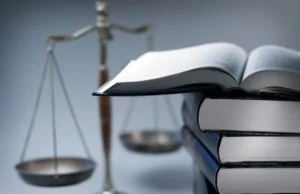
Claim For Indirect Compensation, Principle Of No Indirect Liability
T.C.
COURT OF CASSATION
4th CIVIL CHAMBER
CASE NO. 2016/5084
DECISION NO. 2018/2596
DATE OF DECISION: 03/04/2018
COURT: Civil Court of First Instance
>CLAIM FOR INDIRECT COMPENSATION, PRINCIPLE OF NO INDIRECT LIABILITY
SUMMARY: The case concerns a claim for indirect compensation, whereby each of the defendants alleged to have caused the damage is liable only for the amount attributable to their own fault. In accordance with the principle of non-concurrence of recourse, the fault and liability of each defendant in the specific case must be determined based on a report obtained from an expert witness, and the judgment must be rendered accordingly. However, it is not considered correct that the defendants were held jointly and severally liable based on an erroneous expert report.
Upon the plaintiff’s attorney … filing a petition on 07/04/2014 against the defendants … and … seeking compensation by way of recourse, the court, at the end of the proceedings, After the decision to accept the case, dated 30/12/2015, was requested by the defendant’s representative and the defendant within the time limit for review by the Court of Cassation, the appeal petitions were accepted, and the necessary deliberations were made after the documents in the file were examined with the report prepared by the examining judge.
The case concerns the recovery of compensation paid due to the fault of the enforcement officer. The court decided to accept the case; the judgment was appealed by the defendant’s representative and the other defendant.
The plaintiff’s representative stated that the defendant … was the enforcement director and the other defendant was the assistant enforcement director; that a joint attachment was placed in favor of the 2nd Enforcement Directorate’s follow-up file No. 2002/13040 for the vehicle belonging to the non-party … due to tax debt; that the amount due to the aforementioned institution from the sale price of … was to be paid on 06/21/2004, but the defendants failed to pay the amount due to the aforementioned institution from the sale price of …
Directorate, and that the amount due to the said institution from the sale price was to be paid on 21/06/2004 but was paid on 13/11/2008 due to the fault of the defendants, and that the aforementioned enforcement debtor was forced to pay an additional late payment surcharge, regarding which … The 5th Civil Court of Peace ruled in favor of the case filed under case number 2010/582 and decision number 2011/380, and in accordance with the said decision, … The 30th Enforcement Directorate stated that payment was made to the aforementioned debtor in the case file numbered 2011/17051 and requested the recovery of the amount paid from the defendants.
The defendants argued that they were not at fault and that the case should be dismissed.
The court, based on the expert report, ruled that the claim was accepted on the grounds that the damage was caused by the joint fault of the defendants and decided that the amount awarded should be recovered jointly and severally from the defendants.
As the lawsuit concerns a claim for compensation, each of the defendants alleged to have caused the damage is liable only for the amount corresponding to their own fault. In accordance with the principle that recourse does not entail joint and several liability, the fault and liability of each defendant in the specific case should have been determined based on the report obtained from the expert witness, and the judgment should have been rendered accordingly. However, it was not considered correct to hold the defendants jointly and severally liable based on the erroneous expert report. Furthermore, regarding the recourse… Although the decision of the 5th Civil Court of Peace, case no. 2010/582, decision no. 2011/380, became final on 17/04/2012, the plaintiff institution made the payment to the enforcement file on 09/08/2012. In this sense, it is understood that the late payment was due to the plaintiff institution’s own fault. Therefore, the interest accrued after the finalization of the aforementioned ruling must be deducted from the awarded compensation. In this case, the court’s decision was made without considering the aspects explained above and with insufficient examination, which is not in accordance with the procedure and the law. Therefore, the decision must be overturned.
CONCLUSION: The appealed decision was REVERSED for the reasons stated above. Considering the grounds for reversal, there is no need to examine the defendants’ other appeals at this stage, and the advance fee shall be refunded upon request. This decision was made unanimously on 03/04/2018.